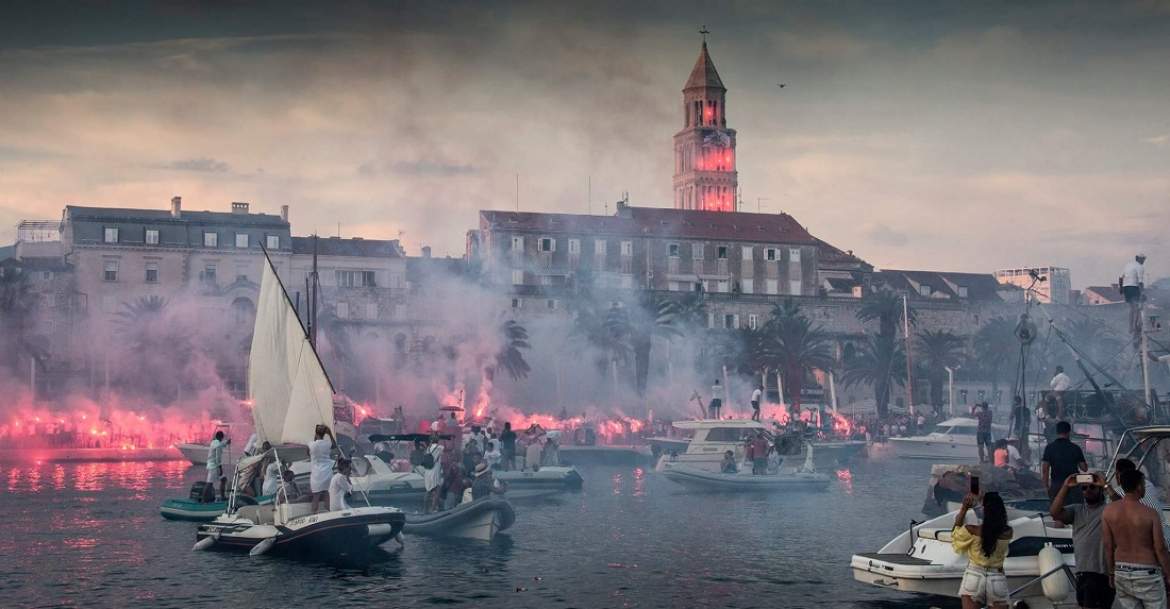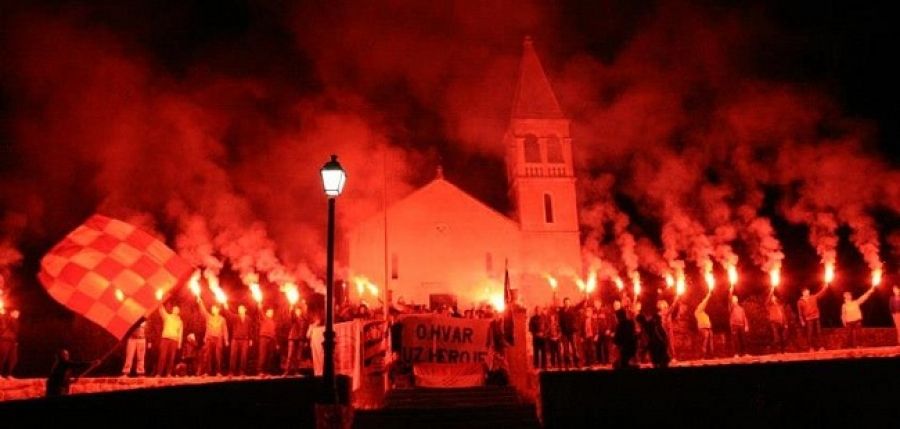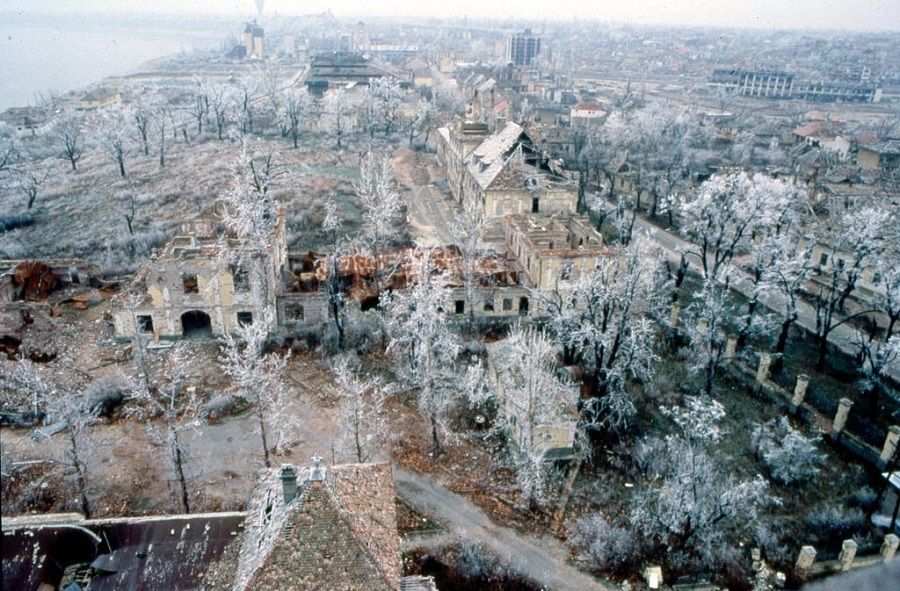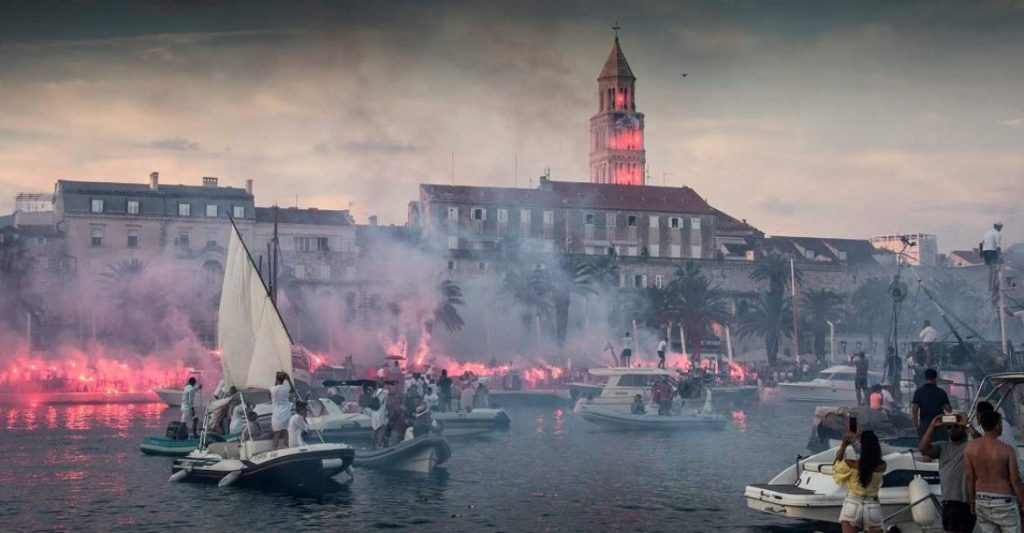November 11, 2018 – Croats in adversity are the most united and determined nation on the planet? So why can’t they come together for simple things when nobody is attacking them?
Having been fortunate to have visited almost 100 countries and lived in ten, I have come to the realisation that nobody beats the Croats when it comes to coming together in times of adversity, and when there is a celebration of victory, Croats know how to party like no other nation on Earth.
The scenes in Zagreb with some 550,000 people on the streets waiting to welcome home their heroes were beamed all over the globe, without doubt the most positive image of the country ever projected onto the international stage. As a longtime foreign resident of Croatia, it was a pleasure to watch.
The Croatian team won millions of hearts, as Modric, Rakitic and co all came together with a series of tenacious performances, and the Croats from the tiny country which dared to dream came together to produce one of the greatest World Cup stories of all time.

Croats were united once more just weeks later, this time in grief, as the most beloved voice in the country passed away. The maritime funeral cortege from Split to Vela Luka for Oliver Dragojevic was another exceptional outpouring of unity and emotion in adversity – this time the loss of their most beloved singer. One of the most read TCN articles ever was written on the back of it – In Life and in Death, Croatia are World Champions at Celebration.

Support for their alleged war criminals in the Hague brought Croats together, and the atmosphere in the country when Ante Gotovina was freed back in 2012 was electric, with church bells ringing out all over the country, as we reported for Google News at the time. This was Jelsa on the night of Gotovina’s arrival in the photo above. I often wonder how Croatia would be today if General Gotovina had gone into politics on acquittal. Could he have changed the system, rooted out the corruption and given the bright future for which so many fought and gave their lives?

And of course, the great unity of Croats in recent times, during the Homeland War, where they came together under huge adversity and emerged with freedom and an independent country.
An incredible nation, then, these Croats – and one to genuinely admire.
But what happens when nobody is attacking them?
A slightly different story…
One of my favourite statistics when I had a real estate business in Croatia 15 years ago was that in a population of 4.5 million (that was the population just 15 years ago…), there were apparently 3.5 million lawsuits in the country, of which about 90% were property related. There is no property dispute quite like a Croatian property dispute, I have come to learn.
One of the curious realities of life here is that while Croats will fight to the last breath to defend the country or on the football pitch, when it comes to protesting injustice or trying to enact change, there is apathy on a scale I have not seen in any of the other countries I have lived. It is a subject I covered in a recent editorial, Instead of Being Counted as Sheep, Will Croatians Ever Stand Up and Be Counted?
Croats love to complain over a coffee in a cafe, celebrating Croatian tragedies. One of my most interesting experiences on Hvar was listening to locals complaining about one issue, which I agreed with them on. I then wrote about the issue on Total Hvar in English (and it led to change), and far from being thanked, the exact opposite happened – Croatia was being attacked by a foreigner, and rather than thanking me, several locals were united against the foreigner who dared to criticise an aspect of Croatia that they themselves were criticising. As Croats.
Ah, Croatia.
(How Malaysia does it – coming together for the greater health tourism industry good)
The thing that inspired this post was born in Malaysia. At the recent Crikvenica International Healthcare Tourism conference, as well as a specialist seminary on branding Croatia as a medical tourism destination this week in Zagreb with Ilan Geva, Malaysia was introduced as a country with best practices in developing medical tourism.
“We brought all the stakeholders together,” explained Malaysia Healthcare Travel Council CEO Sherine Azli. “It was very hard work, and 90% of my job is managing the stakeholders,but by working hard from dedicated medical tourism arrivals hall at our airports, right through the process until the patient departs, all agencies and goverhment departments are working to the goal of giving the best medical tourism experience to the patient. All efforts are coordinated by the Malaysian Healthcare Travel Council, which is a dedicated unit in the Ministry of Health.”
If only Croatia could unite in such a way, on so many levels, to work for the common good – what a country we could have. And the issue is not simply one of dealing with state institutions or health tourism – take a look at how Macedonia’s winemakers are performing on the international stage versus Croatia.











